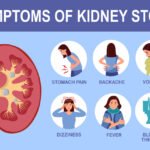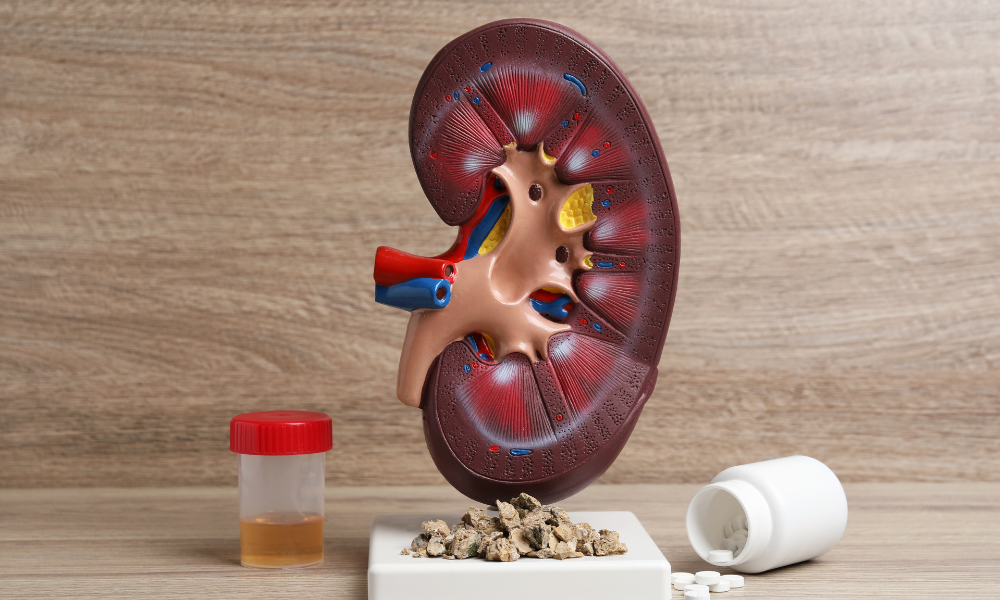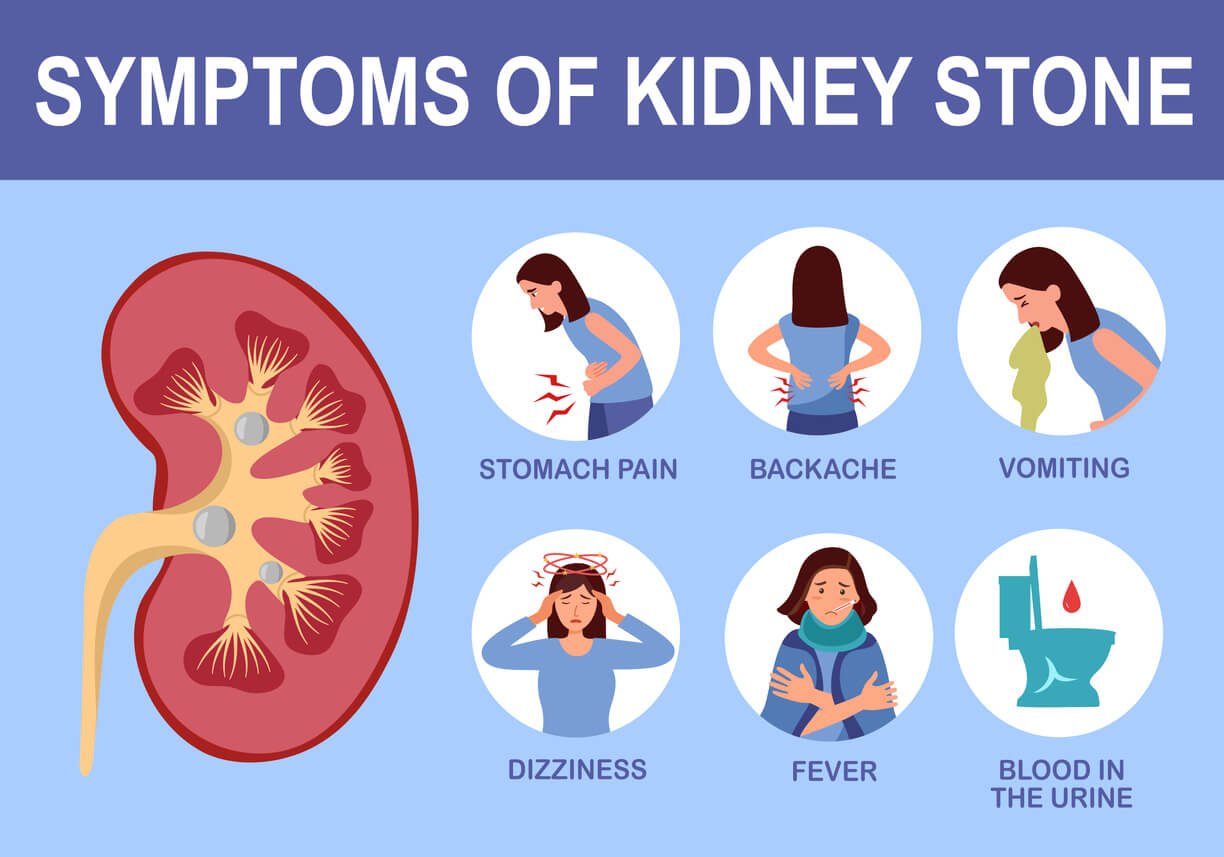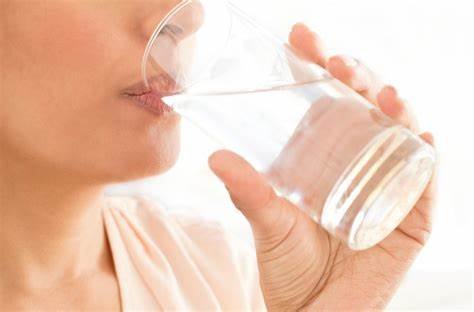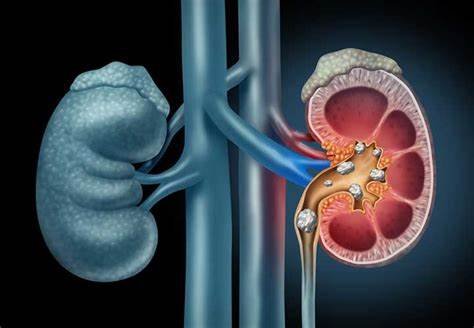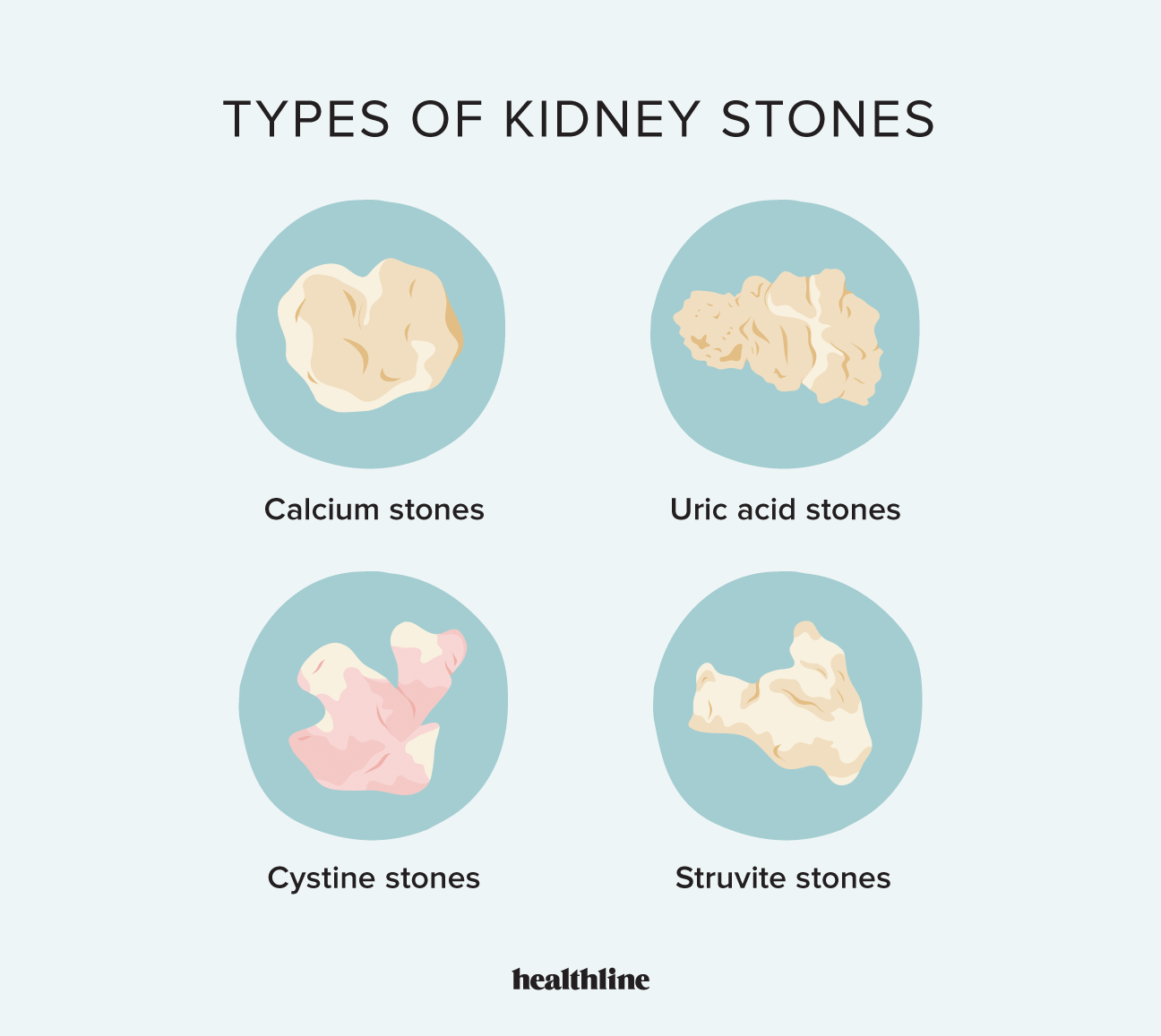Kidney stones are hard deposits of minerals and salts that form in the kidneys and can cause significant pain when they pass through the urinary tract. These stones can vary in size, ranging from tiny grains to large, golf ball-sized masses. Understanding what causes kidney stones is essential for preventing their formation and managing their recurrence. In this post, we’ll explore the main causes of kidney stones, risk factors, and how to reduce the likelihood of developing them.
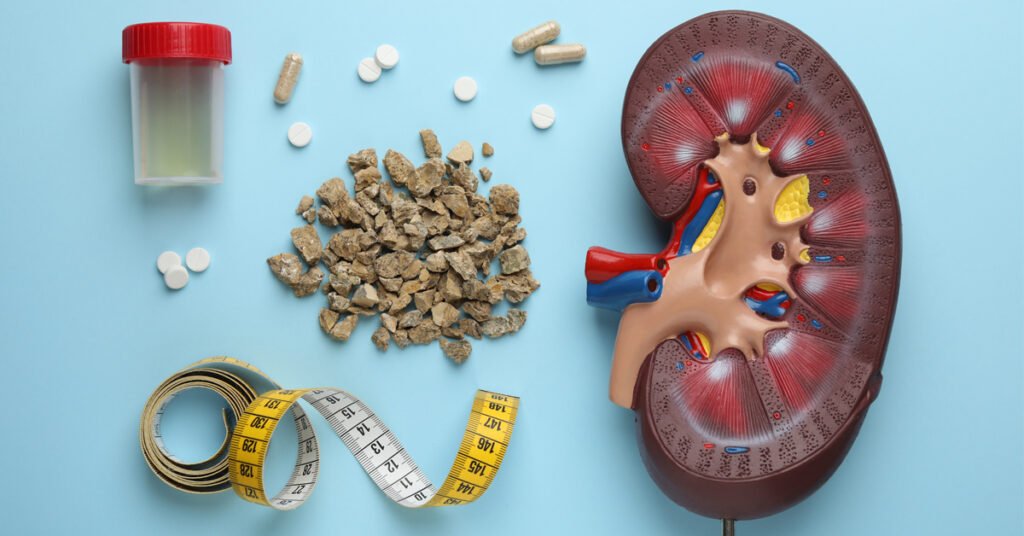
Dehydration and Insufficient Fluid Intake
One of the most common causes of kidney stones is dehydration. When the body does not get enough fluids, the urine becomes concentrated, leading to a higher concentration of minerals and salts. Over time, these minerals can crystallize and form stones. Calcium is the most common mineral found in kidney stones, followed by other substances like oxalate and uric acid.
Drinking sufficient water helps to dilute these substances, preventing them from bonding and forming crystals. To reduce the risk of kidney stones, it is generally recommended to drink enough fluids throughout the day, aiming for at least 8 cups (64 ounces) of water. If you live in a hot climate or engage in intense physical activity, your fluid intake should be increased.
Diet and Dietary Factors
What you eat can play a significant role in the formation of kidney stones. Diets high in certain substances can increase the risk of developing stones. Some of the most common dietary causes include:
- High Oxalate Foods: Oxalate is a compound found in many foods like spinach, rhubarb, chocolate, and certain nuts. When consumed in large quantities, oxalate can bind with calcium in the kidneys, leading to the formation of calcium oxalate stones. While these foods are nutritious, consuming them in moderation and balancing them with other foods can help reduce the risk.
- Too Much Salt: A diet high in sodium increases calcium excretion in urine, which can lead to stone formation. Processed foods, fast food, and high-sodium snacks are the main culprits. Reducing your sodium intake by avoiding processed foods and cooking with less salt can help prevent kidney stones.
- Excessive Protein: Diets rich in animal protein, such as red meat and poultry, can increase the levels of uric acid in the urine. Uric acid crystals can form uric acid stones. A high-protein diet can also lead to an increase in calcium excretion, further contributing to stone formation.
- Low Calcium Intake: Surprisingly, low calcium intake can also increase the risk of kidney stones. Calcium in the diet binds with oxalate in the intestines, preventing it from being absorbed into the bloodstream and then excreted in the urine. When calcium intake is insufficient, more oxalate is absorbed, raising the risk of forming calcium oxalate stones.
Medical Conditions and Medications
Certain medical conditions and medications can increase the likelihood of developing kidney stones. Some of the key contributors include:
- Hypercalciuria: This condition refers to high levels of calcium in the urine, which can lead to the formation of calcium-based kidney stones. It may be inherited or caused by other factors, such as excess vitamin D intake or certain metabolic disorders.
- Gout: Gout is a condition where uric acid builds up in the blood, and crystals can form in the joints. In the kidneys, these crystals can contribute to the formation of uric acid stones.
- Obesity and Metabolic Syndrome: Obesity can lead to changes in the body’s metabolism, increasing the risk of kidney stones. People with metabolic syndrome often have high blood pressure, high blood sugar, and abnormal cholesterol levels, all of which can increase stone formation risk.
- Digestive Disorders: Certain gastrointestinal conditions, such as inflammatory bowel disease (IBD), Crohn’s disease, or gastric bypass surgery, can affect the absorption of nutrients and lead to higher levels of oxalate in the urine, increasing the risk of kidney stones.
- Chronic Urinary Tract Infections (UTIs): Recurrent UTIs can lead to the formation of struvite stones, which are made of magnesium, ammonium, and phosphate. These stones tend to form in people who have urinary infections caused by bacteria that break down urea into ammonia, creating an environment conducive to stone formation.
- Medications: Certain medications can increase the risk of kidney stones. Diuretics, commonly used for high blood pressure, can cause dehydration and increase calcium levels in the urine. Medications that contain calcium or vitamin D can also increase the risk of stone formation, as can some drugs used to treat HIV, epilepsy, and gout.
Family History and Genetics
A family history of kidney stones can increase the risk of developing them. Genetics play a role in how the body processes substances like calcium, oxalate, and uric acid, which can contribute to stone formation. If you have a parent or sibling who has had kidney stones, you may be at a higher risk of developing them yourself.
Climate and Lifestyle Factors
Living in a hot climate or working in a physically demanding job can increase your risk of kidney stones. High temperatures can lead to dehydration, as people sweat more and may not drink enough fluids to compensate for fluid loss. In addition, people who are sedentary or who do not engage in regular physical activity are more likely to experience kidney stones. Regular exercise helps improve hydration and promotes the normal function of the urinary system, reducing the risk of stone formation.
Conclusion
Kidney stones are caused by a combination of genetic, environmental, and dietary factors. Dehydration, a high-sodium or high-protein diet, medical conditions, and certain medications can all contribute to stone formation. Understanding the causes of kidney stones can help you take preventive measures, such as staying hydrated, eating a balanced diet, and managing underlying health conditions. If you’re at risk of developing kidney stones, or if you’ve had them in the past, talk to your healthcare provider about strategies to reduce your risk and maintain kidney health.



